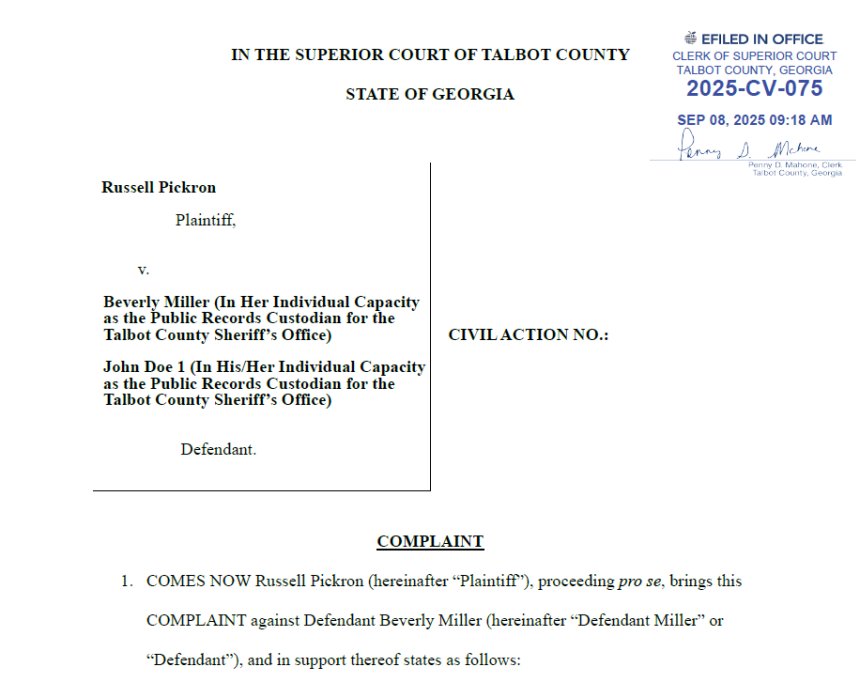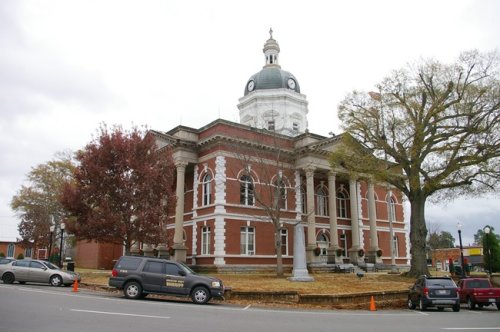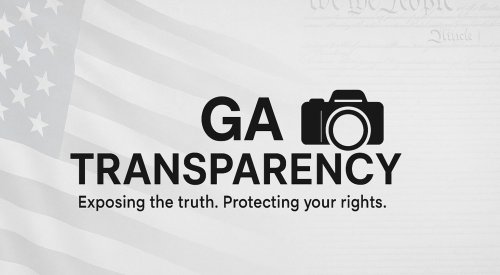Talbot Sheriff’s Office Hit with Lawsuit Over Withholding Public Records
Lawsuit alleges violations pertaining to the Georgia Open Records Act. Beverly Miller in her individual capacity is named on the lawsuit, with the potential of others being named.

TALBOTTON, GA — A new lawsuit has been filed in Talbot County Superior Court, accusing the Sheriff’s Office of repeatedly violating Georgia’s Open Records Act (GORA). The suit, brought by transparency advocate Russell Pickron, targets Beverly Miller, the designated records custodian for the Talbot County Sheriff’s Office, over alleged unlawful delays, refusals, and mismanagement of public records requests.
According to the complaint, Pickron submitted multiple open records requests in June 2025 seeking access to official records. Under state law (O.C.G.A. § 50-18-71), agencies are required to provide records or cite lawful exemptions within three business days. Instead, Miller allegedly stalled, gave vague responses, and failed to produce a single document.
One cited response from July 8, 2025, told Pickron that “you will be notified when records are accessible,” without providing a timetable as required by law. During a recorded call, Miller reportedly admitted to confusion over standard procedures, including fees and email usage, raising further questions about how the Sheriff’s Office handles public access.
The lawsuit lists eight separate counts, including:
- Failure to Timely Respond
- Failure to Provide Records
- Unlawful Delay with No Timetable
- Failure to Provide Electronic Records
- Violation of Ministerial Duties
- Declaratory Judgment
- Injunctive Relief
- Litigation Costs & Civil Penalties
Pickron is asking the court to declare that the Sheriff’s Office violated GORA, order the immediate release of the requested records, and impose civil penalties of up to $2,500 per violation. He also seeks injunctive relief to prevent further violations and to force the agency to adopt compliance policies.
“This lawsuit is about accountability,” Pickron said in the filing. “The law is clear. Public records belong to the people, not to government officials who decide whether or not to release them.”
If successful, the case could have significant consequences for how Talbot County—and potentially other Georgia counties—handle transparency obligations.

Files
Share
What's Your Reaction?
 Like
5
Like
5
 Dislike
0
Dislike
0
 Love
3
Love
3
 Funny
0
Funny
0
 Angry
5
Angry
5
 Sad
0
Sad
0
 Wow
4
Wow
4















